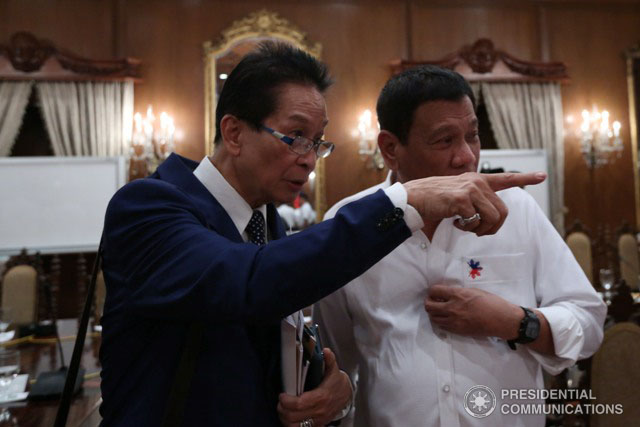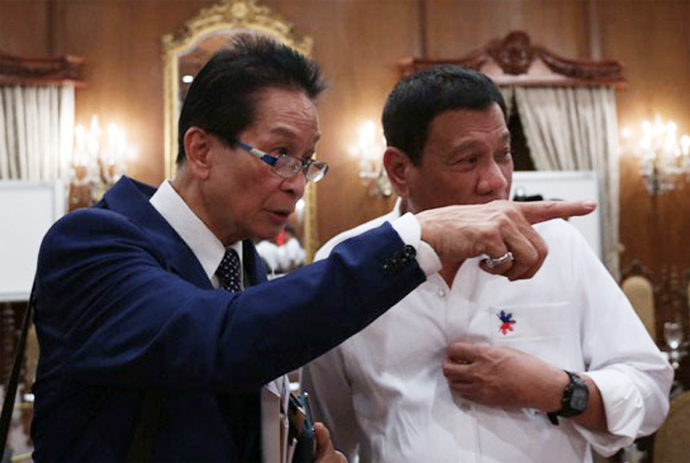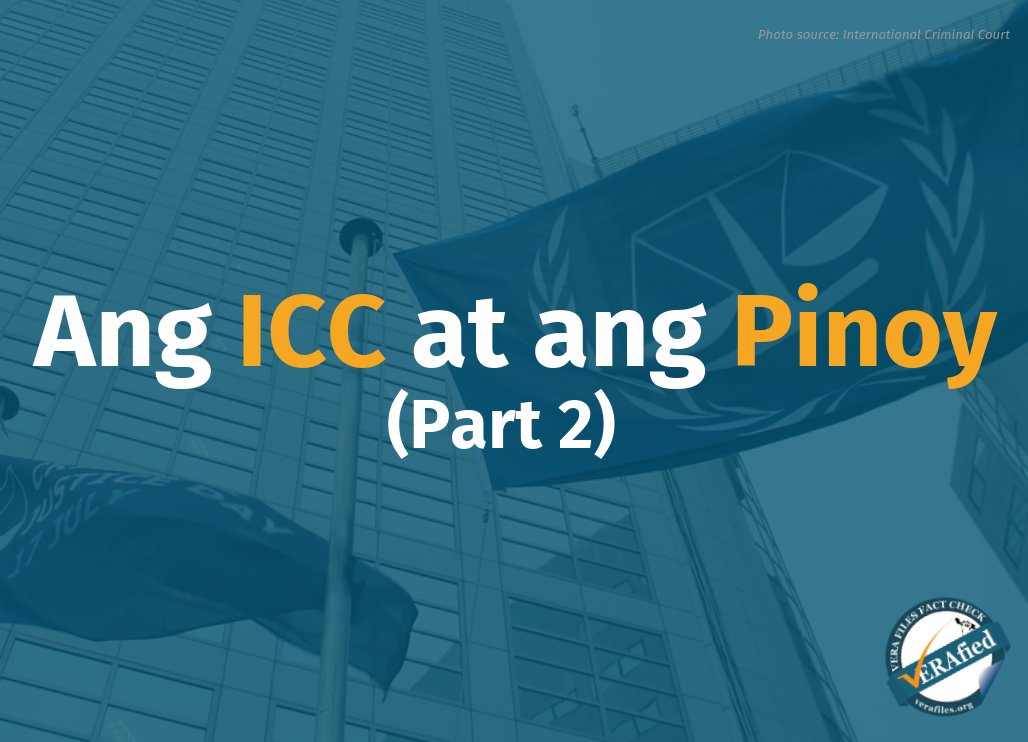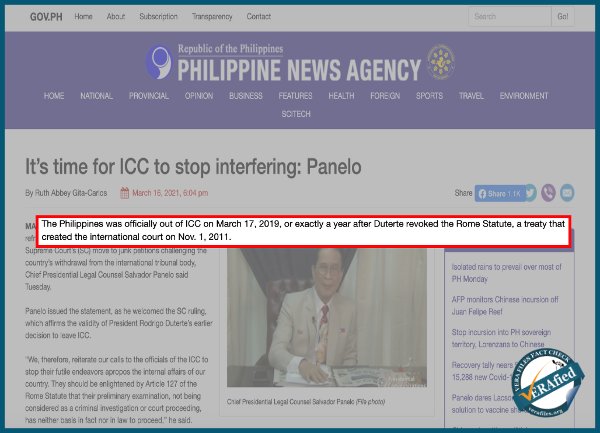Chief Presidential Legal Counsel Salvador Panelo in a March 20 radio interview inaccurately claimed the United States “withdrew” from the Rome Statute, the treaty that created the International Criminal Court (ICC).
STATEMENT
Panelo, discussing the Philippine government’s recent Rome Statute withdrawal, told state-owned Radyo Pilipinas:
“Kasi tingnan mo ha, eh hindi ba ang Amerika naman nag-withdraw. Maraming major powers na wala diyan- miyembro at maraming bansa na ayaw pumasok diyan (Look, even America withdrew. Many major world powers left, and many countries don’t want to enter into the treaty).”
Source: Interview with Salvador Panelo, Radyo Pilipinas, March 20, 2018, watch from 26:22-26:39
Asked about possible implications for the Philippines after its withdrawal, he said:
“Wala. Bakit naman, ano ba ang implikasyon nang umalis ang Amerika? ‘Di ba, mayroon bang nangyari sa Amerika (Nothing. Why, what were the implications when America left? Did anything happen to America)?”
Source: Interview with Salvador Panelo, Radyo Pilipinas, March 20, 2018, watch Facebook video from 28:23-28-31
FACT
Panelo’s claim is misleading.
The U.S. signed the Rome Statute on Dec. 31, 2000 but did not ratify it, informing the United Nations Secretary-General in 2002, it “has no legal obligations arising from its signature”:
“This is to inform you, in connection with the Rome Statute of the International Criminal Court adopted on July 17, 1998, that the United States does not intend to become a party to the treaty. Accordingly, the United States has no legal obligations arising from its signature on December 31, 2000. The United States requests that its intention not to become a party, as expressed in this letter, be reflected in the depositary’s status lists relating to this treaty.”
Source: United Nations Treaty Collection, Rome Statute of the International Criminal Court
A portion of the May 2010 National Security Strategy summarizing U.S. policy toward the ICC, however, notes its willingness to support and provide assistance to prosecutions, consistent with its national interest:
“Although the United States is not a party to the ICC’s Statute, the Obama administration has been prepared to support the court’s prosecutions and provide assistance in response to specific requests from the ICC prosecutor and other court officials, consistent with U.S. law, when it is in U.S. national interest to do so.”
Source: U.S. Department of State, International Criminal Court
The Philippines, in contrast, signed the Rome Statute on Dec. 28, 2000 and ratified it on Aug. 30, 2011.
On Feb. 8, ICC prosecutor Fatou Bensouda announced opening a preliminary examination on crimes allegedly committed by the Philippine government in its war on drugs campaign.
A month later, the Philippine government announced its withdrawal from the Rome Statute. (See VERA FILES FACT CHECK: PHL’s notice of withdrawal from ICC is the latest in a string of inconsistent Palace responses to war on drugs probe)
Foreign Affairs Secretary Alan Peter Cayetano notified the UN Secretary-General of the withdrawal decision March 17</a>; the UN notified the ICC March 19.
President Rodrigo Duterte has said Philippine ratification of the Rome Statute is not binding because it was not published in the Official Gazette.
A 1997 executive order by former President Fidel Ramos providing guidelines in negotiation and ratification of international agreements does not mention a publication requirement for treaties to be in effect.
In a statement, the ICC said:
“A withdrawal becomes effective one year after the deposit of notice of withdrawal to the United Nations Secretary-General. A withdrawal has no impact on on-going proceedings or any matter which was already under consideration by the Court prior to the date on which the withdrawal became effective; nor on the status of any judge already serving at the Court.”
Source: International Criminal Court, ICC Statement on The Philippines’ notice of withdrawal: State participation in Rome Statute system essential to international rule of law
Sources:
Interview with Salvador Panelo, Radyo Pilipinas, March 20, 2018
United Nations Treaty Collection, Rome Statute of the International Criminal Court
United Nations Treaty Collection, Rome Statute of the International Criminal Court, Philippines: Withdrawal
International Criminal Court, The States Parties to the Rome Statute
U.S. Department of State, International Criminal Court
U.S. Department of State, U.S. Engagement With the ICC and the Outcome of the Recently Concluded Review Conference
Official Gazette, Executive Order No. 459
(Guided by the code of principles of the International Fact-Checking Network at Poynter, VERA Files tracks the false claims, flip-flops, misleading statements of public officials and figures, and debunks them with factual evidence. Find out more about this initiative.)






